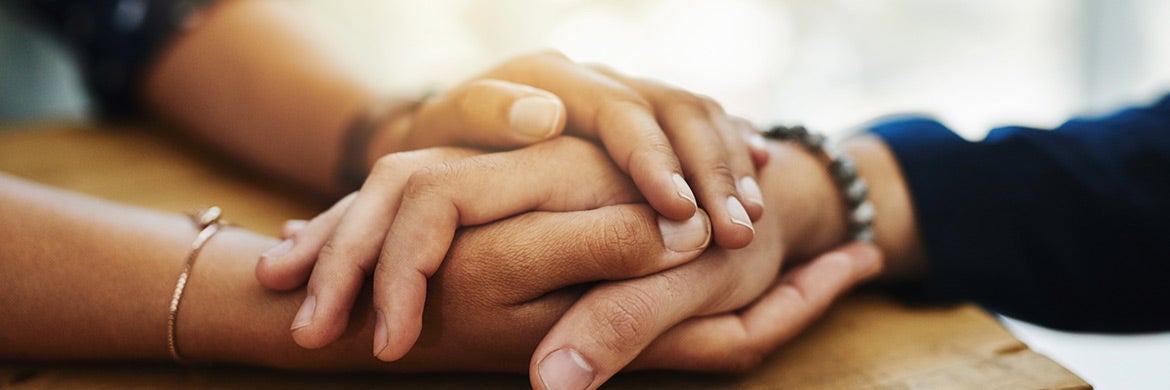CAPS is Open!
To speak to a 24/7 crisis counselor: Call 951-UCR-TALK or 951-827-5531 and select option 1
To speak to our front desk: Call 951-827-5531 and select option 2

Surviving Sexual Assault
Surviving Sexual Assault
By Hung Tran, Psy.D.
Sexual assault is any sexual act, which is unwelcome or unwanted. It is sometimes committed through use of manipulation, coercion, intimidation, threats, force, or a controlled substance. It can range from sexual battery, to threat of sexual assault, to rape.
For survivors of sexual assault, talking about your experience may by particularly painful and difficult. For every survivor of sexual violence, there is someone who also shares his or her pain be it a mother, father, boyfriend, girlfriend, husband, wife, or child.
This article is intended as an informational guide for both survivors, as well as allies of survivor. It highlights some of the societal myths about sexual assault and offers suggestions in the journey toward healing.
-
Myth No. 1: Sexual assault is committed mainly by strangers and criminals who jump out of bushes.
In reality, sexual assaults committed by strangers comprise only a very small percentage. An individual is 73% more likely to be assaulted by someone they know or someone close to them.
-
Myth No. 2: Sexual assault is a sexual act and the person who commits it wants sexual gratification.
Sexual assault, including rape, is NOT about sex. It is about rage. It is an act of violence. It is an attempt to dominate or control another human being and is a serious crime punishable by law.
-
Myth No. 3: It is not sexual assault if it's someone you know or love.
It may be hard to reconcile when someone we know or care about can harm us in this way. Again, sexual assault is not about love or sex, but about violence, dominance and control. It may be important to do an honest personal assessment of your own level of safety in your relationship. Seek help and if necessary, find the courage to leave.
-
Myth No. 4: Sexual assault can't happen to men.
Sexual assault can happen to anyone. It's estimated that 10% of sexual assault survivors are men. More than half of all sexual assaults go unreported and men are even less likely to report a sexual assault. Social gender stereotypes and internalized biases can make it particularly difficult for a man to report. Just as for some women, it can be embarrassing and shaming for male survivors to admit abuse and reach out for help. Frequently, the person suffers in silence.
-
Myth No. 5: I must have led him or her on by something I said or did, or by the kinds of clothes I was wearing.
Frequently, there is a tendency to blame the survivor. It is important to remember that no one willingly invites violence against him or her. Nothing we do, say, or how we dress should serve as justification for violence or violation of our personal space and physical boundaries.
-
Myth No. 6: It is not sexual assault if I change my mind.
This is another form of blaming the survivor. Everyone has the right to refuse and change his or her mind, and to feel uncertain towards something. Any time someone does not respect another's personal wishes, any sexual act between them is no longer consensual but rather an act of violence/assault.
-
Myth No. 7: If they pay for dinner, then I owe it to them or they are justified in wanting sex in return.
Accepting dinner does not obligate anyone to anything, least of all sex. Anyone who uses this justification for sexual violence is acting through manipulation and coercion.
-
Myth No. 8: People will think less of me if I tell them I am a survivor.
For someone who keeps in the secret of a sexual assault, there may be tremendous fear that friends and loved ones may find them damaged, think less of them, or find them unacceptable in some way. Frequently, this fear is unfounded. For those who find the strength and courage to reach out to loved ones for support, they are often met with love, caring, concern and encouragement.
Some Common Reactions
After a sexual assault, it's not uncommon to experience numbness or detachment from oneself or one's own body. Some survivors may experience a feeling of inner turmoil, which may include an inability to feel "clean" or "wholesome."
Loss of appetite, hypervigilance, sensitivity to being startled, and sleep disturbances including vivid nightmares are common physical complaints. Common emotional reactions can include excessive feelings of guilt, shame, or feeling responsible for causing the sexual assault or not preventing the sexual assault.
Sometimes survivors can experience strong feelings of anger. These reactions are normal and ways of coping with an atypical and traumatic event. The person may feel alone and isolated and feel like no one can help. In some cases, these reactions may lead to a disruption in functioning including depression, which may indicate a need to seek professional help.
For Allies
For allies of survivors, it's important to not personalize the survivor's reactions and responses. Allies may also experience similar reactions through a process called vicarious trauma. For example, allies may also feel helpless and become frustrated by the behaviors of their loved ones, especially if they feel like they are being pushed away.
Allies can be helpful by taking a supportive and nonjudgmental stance and convey their genuine concern without pushing the person to do something they are not ready for. It is recommended to avoid use of language which directly or indirectly blames the survivor or implies that he or she could have done something to prevent the assault from happening.
Most importantly, being patient and letting the person know that you'll be there when they are ready to talk can be a tremendous source of comfort. It may also be helpful to encourage and support the person to seek professional help, such as talking to a counselor or therapist.
For Survivors
Surviving and overcoming sexual assault can be a difficult and slow journey and may take time. Healing may not happen overnight. It may be hard to begin trusting others again or regain a sense of safety. Remember that you do not have to do this alone.
Counseling and Psychological Services has a team of caring professionals that can help support you. Campus Advocacy, Resources & Education (CARE) has confidential advocates to help in sorting through your emotions, resources and options. Family, friends, and loved ones can be valuable sources of support. There are also many community resources available for information and support. Patience and kindness towards yourself can help in the journey towards healing.
OFF-CAMPUS RESOURCES
- Riverside Area Rape Crisis Center
- Riverside Community Hospital
- Parkview Hospital
- Rape Abuse and Incest National Network (RAINN)
- VALORUS (formerly the California Coalition Against Sexual Assault [CALCASA])
For a quick guide on supporting students in crisis consult the Red Folder.
Red Folder
If this is a life-threatening emergency, call 9-1-1 or go to your nearest hospital emergency room.


